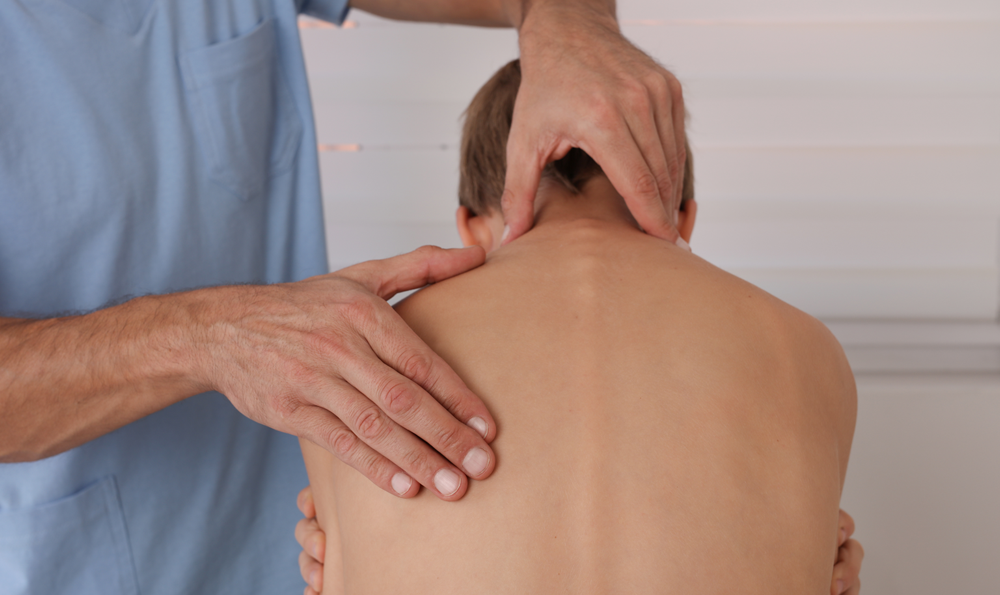Scoliosis—a sideways curvature of the spine—often develops in the early years of childhood. It can start subtly, but over time can lead to long-term pain, posture problems and, in severe cases, complications with lung and heart function.
John Tis, MD, a pediatric orthopedic surgeon, explains why early detection is crucial. “Identifying scoliosis in its earliest stages not only helps minimize its progression but also opens the door to less invasive treatments and better long-term outcomes,” he says.
Straightening a curved spine
For example, Dr. Tis recently treated an 18-month-old child with a serious spinal condition known as infantile scoliosis.
The toddler’s spine had a 56-degree curve—a severe case that, in the past, might have required surgery. But thanks to a nonsurgical technique called Mehta casting, the little boy’s spine improved dramatically in just one year, reducing his spinal curve from 56 to 19 degrees.
What is Mehta casting?
Mehta casting involves using special casts to gently correct the spine over time. It's a significant breakthrough for young children with scoliosis who are too small for surgery.
“Traditionally, these cases would have required spinal hardware, bracing, and eventually surgery,” says Dr. Tis. “With Mehta casting, we can correct the curve before any of that becomes necessary.”
Early interventions for scoliosis
Infantile cases, like this example, are rare. For most children, scoliosis becomes noticeable during growth spurts—particularly during the adolescent years.
“If you catch scoliosis early—especially before the curve reaches 50 degrees—there’s a much higher chance of fixing it with casting or bracing,” says Dr. Tis, who explains that scoliosis can be genetic, and most children who are diagnosed with it won’t need surgery.
A future full of possibilities
Before Mehta casting, children with severe curves often ended up with fused spines that limited their growth and lung function. Some kids even developed life-threatening complications. Now, with both nonsurgical and surgical advances, children with scoliosis can lead full, active lives—and even participate in impact sports.
“With today’s technology and surgical techniques, many of our postoperative patients walk the day after surgery and are back to full activities, like swimming and, in time, even football.”
Noticing the warning signs of scoliosis
Each year at your child’s wellness checkup, your pediatrician is paying close attention to your child’s spine to spot any potential signs of scoliosis. According to Dr. Tis, there are a few telltale signs that detect a spine beginning to curve.
“Look out for uneven shoulders, ribs sticking out more on one side, or a visible curve in the back,” he says. “For parents, if you’re at all concerned, get it checked. Most of the time it’s nothing serious, but if it is scoliosis, early intervention makes a world of difference.”












